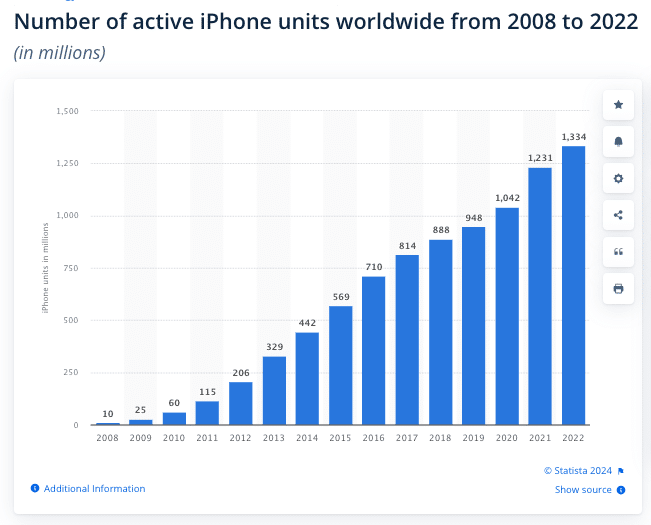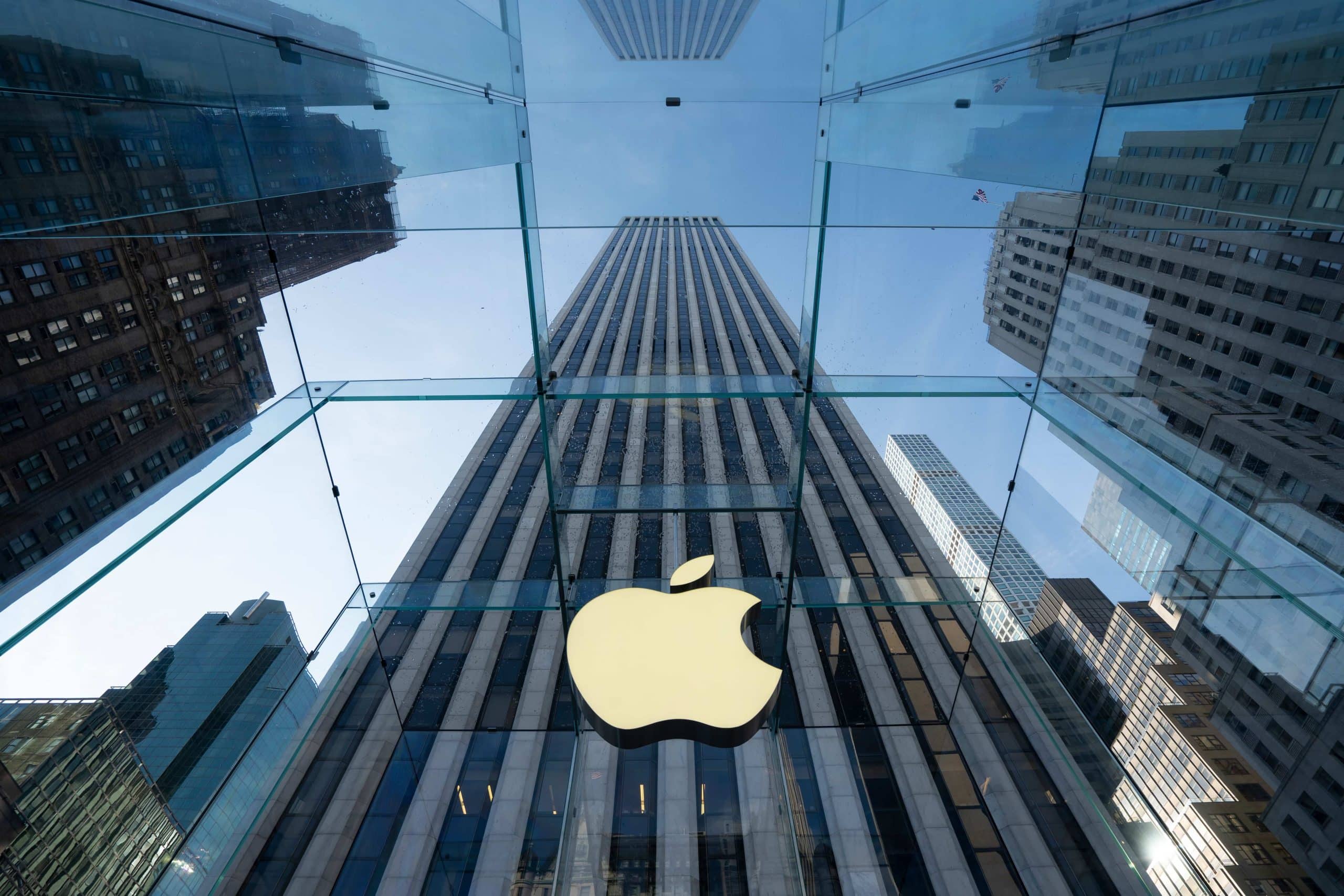After years of trailing big tech rivals in artificial intelligence, Apple is exploring an unorthodox partnership to bring powerful generative AI capabilities to its flagship iPhone as soon as this year, a new report from Bloomberg’s Mark Gurman revealed today.
The technology giant is reportedly engaging in “active negotiations” with Alphabet, the parent company of Google, to license the search giant’s cutting-edge Gemini AI models, anonymous sources told the well-known media outlet.
BREAKING NEWS: Apple and Google are in discussions for Gemini to power Generative AI features coming to the iPhone with iOS 18 this year. Apple also recently held talks with OpenAI on a deal. https://t.co/NA2q6BImOz
— Mark Gurman (@markgurman) March 18, 2024
If a deal is reached, Apple could integrate Gemini’s capabilities into new features coming with iOS 18 and other software updates slated for release later in 2024.
Apple’s Homegrown AI Lags Behind Competitors
These reported talks with Google underscore the sense of urgency reigning at Apple (AAPL) at the time to catch up with other smartphone manufacturers like Samsung and even Xiaomi in the field of generative AI.
This is an area where competitors like OpenAI, Microsoft, and Google itself have been expanding their turf over the past year. Apple and Google’s discussions were particularly intriguing because we know that Apple is already building its own generative AI model to power iPhone features. While it has been developing its own large language model codenamed “Ajax”, the company’s AI technologies remain far behind its rivals, Bloomberg’s sources confirmed.
Apple employees have been testing an in-house chatbot dubbed “Apple GPT” but the tool is not considered to be ready for mainstream deployment. As a result, the company appears to be recognizing the need for third-party assistance – at least in the short term.
Apple’s intends to leverage the power of existing generative AI solutions like Gemini to do the ‘heavy lifting’ and is engaging in productive talks with not just Alphabet but also OpenAI to deploy new AI features for its upcoming mobile operating system iOS 18.
It is worth noting that the Cupertino-based tech firm has been investing heavily in hiring AI talent and acquiring companies developing cutting-edge AI tools. According to data from PitchBook, the iPhone maker has acquired more than 20 companies thus far since 2017 to power its in-house AI R&D efforts.
Apple’s decision to reach out to Google may be an indication that it thinks that it needs generative AI products as soon as possible. Otherwise, they would likely wait until their own model is mature enough.
Apple and Google… Really?
Apple holding discussions with Alphabet (GOOG) over AI may seem like an odd pairing. The two companies are fierce competitors in the mobile operating system market and have feuded over each other’s dominant positions in the market in internet services like web search and app stores.
However, their commercial relationships are deeply intertwined. Apple receives an estimated $18 billion to $20 billion per year from Google to make its search engine the default on iPhones and iPads. Moreover, the two companies have occasionally joined forces to develop new technologies like encrypted messaging and communication tools.

For Google, the prospect of providing the backend and infrastructure required by Apple to deploy new AI features and tools means expanding the reach of its Gemini AI model to over 1 billion active iPhones. That could be a tremendous boon for the company looking to expand its user base. Gemini, formerly known as Bard, already has a presence on smartphones through partnerships with Samsung and on Google’s own Pixel devices.
Bloomberg’s tech report Mark Gurman comments that a partnership between the partnership would be the largest achieved thus far by Gemini and it could result in the widespread adoption of this AI model. This poses a threat to the perceived dominant position that OpenAI has amassed as the go-to AI tool for hundreds of millions of individual and corporate users across the globe.
Tim Cook’s Team Has Been Courting OpenAI as Well
While the talks with Google appear to have advanced the furthest, Apple has reportedly been keeping its options open by discussing potential partnerships with other leading players in the field as well.
The company has held conversations with OpenAI, the startup behind the wildly popular ChatGPT and DALL-E image generator, which has recieved billions of dollars of investment money from Microsoft (MSFT). However, “the two parties haven’t decided the terms or branding or an AI arrangement or finalized how it would be implemented”, Gurman notes in his report.
OpenAI’s ChatGPT arguably remains the gold standard in consumer AI, at least for now. However, the freemium pricing model favored by OpenAI, which makes its tech available and affordable to the general public, could clash with Apple’s signature strategy of maintaining tight control through closed, proprietary ecosystems.
Google’s enterprise licensing approach may align better with how Cupertino plans to distribute AI capabilities.
Potential Use Cases: Image Generation, Writing, and More
Details of the scope of a potential agreement remain unclear. However, the report indicates that Gemini could help power generative AI features for creating images, writing essays, and other content based on simple text prompts sent by users. It may also add various camera and photo editing AI features like a magic eraser tool that mirror the expansive feature set in the new Google Pixel 8 phones.
Additionally, Gemini’s language skills could be incorporated into core iPhone apps and functions like web browsing, messaging, note-taking, and more – essentially turning the digital assistant Siri into an improved conversational AI that works similarly to ChatGPT.
On the hardware side, these advanced AI capabilities could become a key selling point for future smartphone models like the iPhone 16, allowing for AI-enhanced camera and image functionality, improved augmented reality experiences, and other innovations yet to be conceived.
Regulatory Scrutiny Likely for Any AI Deal
Any deal that binds two of the world’s biggest technology companies more tightly would almost certainly invite fresh regulatory scrutiny on antitrust grounds. It certainly doesn’t help (the deal) that Lina Khan, the chairperson of the FTC, is the most aggressive antitrust regulator in recent memory.
The billionaire annual payment that Google extends to Apple to remain the default iPhone search engine has already provoked accusations from US regulators that the former company is engaging in anticompetitive practices to entrench its search monopoly.
Requiring iPhone owners to pay for access to Google’s AI – or even offering it for free by default – could be viewed as another avenue for extending that dominance.
Apple’s motivations may be to acquire strong AI capabilities quickly while still developing internal solutions over the long term. However, any partnership that outsources key technological capabilities to an archrival will likely face tough questions about market impacts and consumer choice implications.
Will Apple Unveil its New AI features at WWDC?
With negotiations seemingly progressing at a brisk pace, industry watchers will be focused on Apple’s annual Worldwide Developers Conference (WWDC) in June as the potential coming out party for the company’s AI strategy – including any surprise partnerships.
The tech company’s CEO Tim Cook stoked those expectations during the February earnings call, stating that Apple would unveil its AI features sometime in 2024 and declaring that “there’s a huge opportunity for Apple with generative AI.”
While development timelines remain uncertain, a Gemini-powered iOS 18 unveiling featuring new intelligent writing tools, AI-powered photo and video editing capabilities, and a more powerful voice assistant could mark Apple’s first big hit in the generative AI war.
Execution and Branding Remain Critical to Successfully Pivot to the AI Era
Getting to the market first through a third-party model may not be the best course of action for Apple to achieve long-term AI success. User experience, model safety, and computational efficiency will all be critical areas where the traditionally closed Apple ecosystem could be challenged.
The company has always been reticent about adopting externally-developed foundational technologies.
The branding and go-to-market strategies will probably be make-or-break factors as well. Apple would likely market any Gemini-powered features under its existing Siri brand or potentially a new sub-brand like “Siri Intelligence”. However, trimming “Google” completely from external messaging could prove impossible for regulators to accept and Alphabet may not go with it either considering that they still have a long way to go to establish themselves as an AI powerhouse.
Just recently, Gemini faced significant backlash from the public after the model inaccurately promoted gender and race equality through its image generation capabilities. Pictures including Black and Asian Nazi party members and soldiers quickly spread through the internet and were mocked by users and sparked concerns among regulators and lawmakers due to their ability to spread misinformation and instill confusion among teenagers.
Considering that generative AI is still an ongoing experiment, Apple’s first meaningful AI foray seems poised to be anything but a smooth roll-out. The company’s vaunted proficiency in simplifying new technologies for mass consumer adoption will truly be put to the test if a partnership with a third party – Alphabet or OpenAI – comes to fruition.
